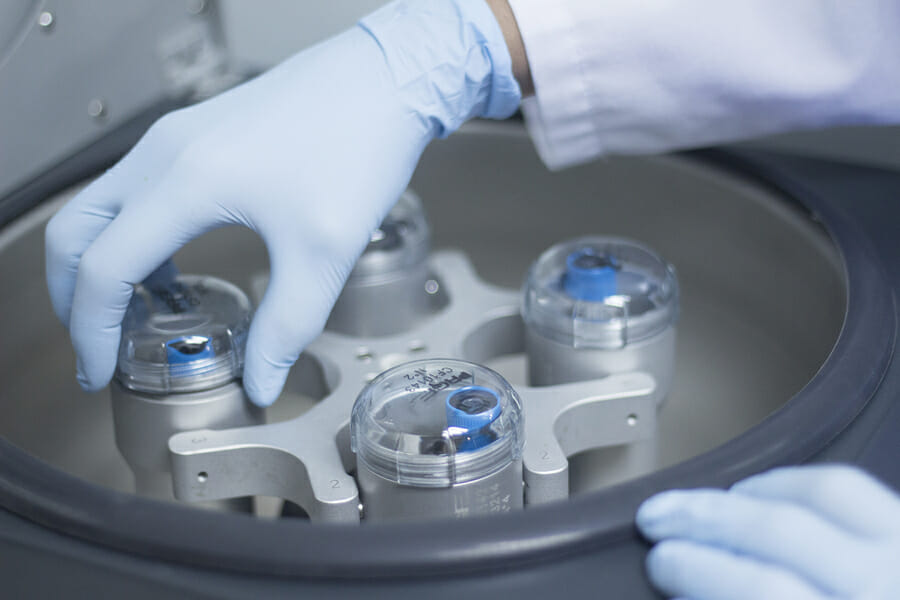PRP — Does Platelet Rich Plasma help women with hair loss?

This is a question that Dr. Nakatsui would love to find an answer to. When injection of platelet-rich plasma (PRP) first came out as a treatment several years ago, he was very interested and tried using
it to improve the quality of the skin but was not impressed with the results. As a result, he put this on hold until he could determine if it was truly effective or not. It sounds like a great idea but does it truly work? He is waiting to be convinced because if it works, he would gladly offer it to his patients in Edmonton again. There is evidence of effectiveness for wound and joint healing but does this extend to skin and hair?
Is there a good study on PRP?
In 2016, there was a double blind, multi-centre, placebo controlled study (the best kind of study) done that compared injection of PRP and placebo (saline) (Dermatol Surg 2016; 42:1243-1247). Investigators looked at hair counts and hair mass index along with patient-opinion survey responses. Examination of hair counts and hair mass index showed there was no significant difference between the treatment group and the placebo group 26 weeks after injection. Interestingly, however, when asked about the results of the treatment, 13% of the treatment group felt that they experienced improvements in hair loss and hair thickness, and 26.7% felt their hair felt coarser or heavier after the treatment. The hair was examined objectively by someone who had no idea which patients were injected with PRP or saline, so there was no potential for bias. In this study, about 1 out every 4 patients thought their hair improved when it actually did not.
Conclusion about PRP (So far)
At least in this study, there is no evidence that injection of PRP has any positive benefit on female pattern hair loss. The study design was very good and the results seem to be objective. In addition, the system used to acquire the PRP was one of the better ones as it was capable of concentrating platelets more significantly than most other systems. However, it is possible that another regimen might be effective and as a result, Dr. Nakatsui has not ruled out the possibility this could be effective in some patients. In fact, there is a study that just came out by Hausauer et al (Dermatol Surg 2018;44:1191-1200) that suggests that injection of PRP may be effective for androgenetic alopecia. It shows some good results, although it is not double blinded nor placebo controlled so there are potential biases that may be involved. It is interesting, though, that there are such diametrically opposing conclusions coming from different studies. What do we make of this?
As we mentioned before, Dr. Nakatsui would love to see this treatment work for patients. If you have convincing evidence that PRP works and works not just for you but for other patients as well, Dr. Nakatsui would welcome your evidence. That being said, Dr. Nakatsui does not want to offer a treatment that is only effective for 5% of the population. It must be effective for at least a majority of patients for Dr. Nakatsui to want to offer it.
Click here to read about a study on the concentrating ability of 3 different PRP systems.
